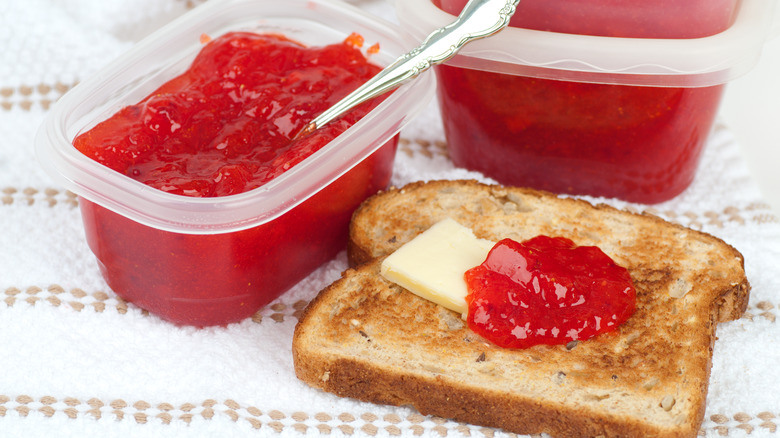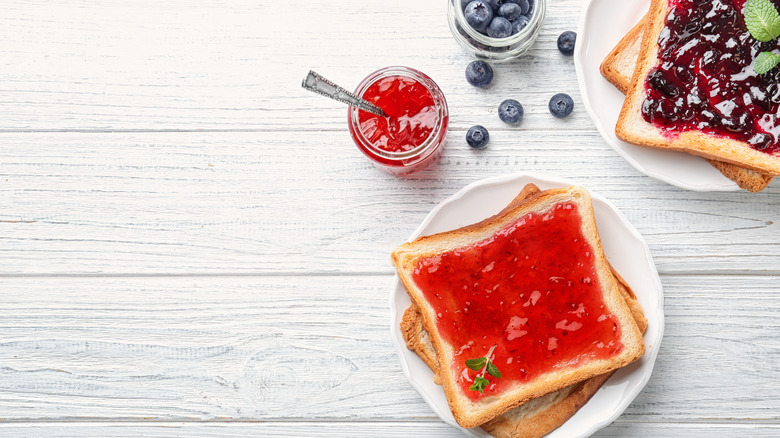This Is Why You Should Never Freeze Jelly
When it comes to keeping food fresh, not all items can be stored the same way: According to the National Center for Home Food Preservation, some foods just don't belong in the freezer. While it's a great way to extend the shelf life of leftovers when you make a bit more of a delicious recipe than you could possibly eat, Real Simple explains that some items simply aren't able to withstand freezing. When it comes time to thaw, the texture and taste might not be quite the same. This is especially true when it comes to sweet and delectable jelly.
According to Foodsguy, when this sweet spread is made, the fruit is strained out so just the fruit juice, sugar, and pectin are left behind to form a thick consistency you can smear on your morning toast. However, it's this very consistency that might be lost if you freeze homemade or store-bought jelly.
It will leave your toast soggy
According to the National Center for Home Food Preservation, jelly can lose its quality after being frozen. The spread can become a liquid mess that will make your bread all soggy and mushy. The thick consistency and texture that make the food item perfect in a PB&J may be lost after freezing, leaving you with a soaked-through piece of bread.
However, Foodsguy shares that jelly can indeed be frozen, but you should only do so once. To thaw it, you can either put it in the refrigerator or let it thaw out in a warm water bath. Either way, you should be prepared to eat it within about two weeks, and you should not put it back in the freezer after it's thawed. Per The Kitchen Community, you will know that it is no longer edible by checking out the color and smell. If there is any visible mold growing after you thaw it, you should toss it.

